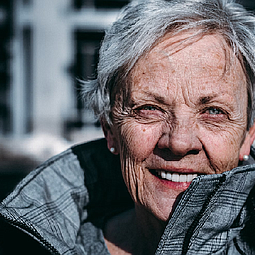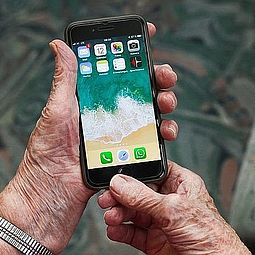What Does ‘Biological Age’ Mean?
March 7, 2023 at 2:36 p.m.
He’s not alone. Hilary Brueck wrote an article in INSIDER about this phenomenon, in which she defines biological age and explores if it is truly possible to reverse aging.
Biological age measures how healthy a person’s cells and organs are, how efficiently they are operating. The National Institute on Aging defines biological age as the “true age that our cells, tissues, and organ systems appear to be, based on biochemistry.” In general, the older you get, the less efficiently your cells and organs tend to function.
Brueck says that current science demonstrates that reversing biological age is not only possible but has been achieved…at least in simple organisms like yeast, and even in mice. But, she says, the jury is still out on if reversing biological age is possible in humans.
She writes, “The buzzy term ‘biological age’ suggests there may be a more complex, and precise, scientific answer to the straightforward question, ‘How old are you?’ – one that can’t simply be answered by measuring the amount of time a person has spent on Earth.”
What she is learning is that longevity scientists, doctors and geneticists are starting to think that it’s possible that people have a biological age which can be different from their chronological age.
Brueck reports that the idea of pinpointing a numeric biological age based on your biochemistry is controversial. “…it is difficult to say for sure that there’s a ‘normal’ way our cells should look at any given age, or that being ‘biologically young’ is actually any different from staying healthy and fit as we age.” In other words, there is no scientific definition of biological age.
That doesn’t stop people from working to achieve a younger biological age.
We all know that every person of the same age is not equally healthy. And there is no denying that the field of biological aging research is racing forward.
Currently, there are blood tests that may be able to predict when a person will develop age-related conditions such as heart disease or memory loss. But, asks Brueck, can we use these types of biological markers to determine exact biological age? Further, she asks, “Can we target those tell-tale aging markers to make people younger again.”
Private companies are betting that the answer is yes. And esteemed scientists like Dr. Nir Barzilai, director of the Institute for Aging Research at the Albert Einstein College, believes that it may be possible to bring down one’s biological age with drugs like metformin and rapamycin. He is working to develop a new class of US Food and Drug Administration approved as “anti-aging” treatments called geroprotectors. Both rapamycin and metformin are drugs that are currently approved for different purposes than reducing biological age. Rapamycin helps protect against organ transplant rejection among other uses; metformin is a drug that is used to lower high blood sugar levels in patients with type 2 diabetes. But both are being intensively studied on how they affect the biological markers of aging.
While research is forging ahead, the author concludes that, currently, the simple answer to the question – Can we determine biological age – is “no.”
Still, many scientists in the longevity field say it is only a matter of time. They believe they will not only be able to determine your biological age but provide treatments that target multiple diseases of aging. In effect, some believe they can turn back the biological clock.
The goal, it seems, is not necessarily to add a lot of years to your lifespan, but to add a lot of years to your healthspan. In other words, the goal of longevity science may be to achieve healthier, more active and vital lives until the day we die – avoiding the infirmities of disease and old age.
In the meantime, practice what longevity doctors and scientists endorse: lifestyle choices such as eating nutritiously dense diets that include healthy fats while avoiding added sugars and processed foods, getting regular exercise, meditating, engaging in activities that are meaningful to you, and maintaining strong ties with friends, family and the community.
Click here to read Hilary Brueck’s article on reversing aging.





